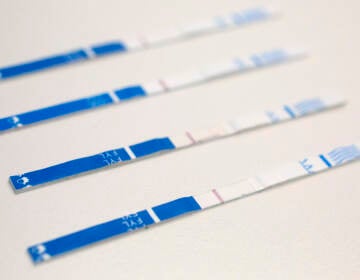Grants helps CHOP connect with teen moms on family-planning options

Oral contraceptives (Big Stock image)
Thanks to a new grant, doctors at the Children’s Hospital of Philadelphia will be talking to teen moms about their options for family planning during their infant’s check up.
While teen pregnancy rates in the U.S. have fallen to their lowest point in 40 years, Philadelphia isn’t doing as well as other parts of the country.
“Our rates remain significantly higher than the rates in the rest of the nation, more than twice as high as the rates in the rest of the nation, ” said Dr. Aletha Akers, an obstetrician-gynecologist at CHOP. She developed a program to provide contraceptive services to adolescents who are seen in the CHOP system with a special focus on longer-acting birth control devices.
The teen pregnancy rates may be higher in Philadelphia because the city has higher rates of sexual activity compared with some other larger cities in the country; a high poverty rate; and lower uptake rates of those longer-acting contraceptive options such as intrauterine devices and subdermal contraceptive implants.
And CHOP pediatrician Dr. Emily Gregory said it’s easy for teen moms who are seeking health care for their babies to let their needs get lost in the shuffle.
“We think of ourselves, as pediatricians, often as providing care for the infants,” she said. “But, you know, a lot of these moms are very young and would even fall into our general patient population themselves.”
With such a high volume of babies coming to the pediatric care clinic, she said, providers don’t always remember to ask the mothers about their own health.
A grant of just under $30,000 from The March of Dimes will allow CHOP to increase screening and documentation for new moms by encouraging providers to ask the young women how their pregnancy went and discuss family planning.
The goal, said Gregory, is to “include in that conversation a question about whether anyone … addressed family planning and birth control options with them already. And in cases where they haven’t, I think we have the ability to provide that counseling.”
In particular, providers want to make sure moms know about long-lasting contraception such as IUDs, which do a better job of preventing future pregnancies and are reversible.
When a young woman has multiple children during her teen years — and 20 percent of teen moms do — it increases her risk for giving birth prematurely and other poor outcomes, Akers said.
WHYY is your source for fact-based, in-depth journalism and information. As a nonprofit organization, we rely on financial support from readers like you. Please give today.




